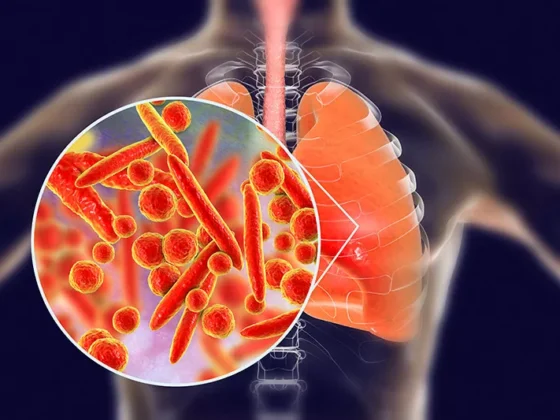New Delhi, 22 November 2024: Methanol poisoning is a potentially life-threatening condition caused by the consumption of methanol, a toxic form of alcohol often found in contaminated or counterfeit alcoholic drinks. While ethanol, the type of alcohol used in beverages, is safe for consumption in moderation, methanol is highly toxic to humans and can lead to severe health complications, including blindness and death. Known as the “silent killer,” methanol poisoning often goes unnoticed until symptoms become critical, making awareness and prevention vital.
In recent years, incidents of methanol poisoning have been on the rise, particularly in regions where unregulated or homemade alcohol is widely available. Understanding the dangers, symptoms, and preventive measures can save lives. This article delves into everything you need to know about methanol poisoning, including how to recognize it and protect yourself.
What is Methanol?
Methanol, also known as wood alcohol, is a simple type of alcohol used primarily as an industrial solvent, antifreeze, and fuel. Unlike ethanol, which is found in alcoholic beverages, methanol is not safe for human consumption. It is odorless, colorless, and highly toxic, making it difficult to detect in drinks.
In some cases, methanol is deliberately added to counterfeit alcoholic beverages to increase the volume cheaply. However, even small amounts of methanol can be deadly when consumed, as the body metabolizes it into toxic compounds like formaldehyde and formic acid, which cause severe tissue damage.
The Dangers of Methanol in Alcoholic Drinks
Often called a ‘silent killer’, methanol can inflict harm without showing immediate signs. It’s present in poorly manufactured alcohol, particularly in illicit or unregulated drinks. These beverages might have high levels of methanol, resulting in acute poisoning. It’s vital for public safety to understand the risks tied to consuming unregulated alcoholic products.
How Does Methanol Affect the Body?
When consumed, methanol is processed by the liver into formaldehyde and formic acid—both of which are highly toxic. This metabolic process can throw the body’s functions off balance, leading to a dangerous condition known as metabolic acidosis, where the blood becomes overly acidic. Symptoms usually start appearing within a few hours of consumption, so recognizing them early is critical to prevent serious health complications.
Recognizing the Symptoms of Methanol Poisoning
Spotting the signs of methanol poisoning can be tricky, as they often mimic those of other illnesses. Early indicators include headaches, dizziness, nausea, and vomiting. As the poisoning advances, more severe symptoms may manifest, such as blurred vision, difficulty breathing, and seizures. In severe cases, methanol poisoning can lead to coma or death, making it important to be aware of these symptoms for timely medical response.
Who is at Risk?
While anyone can fall victim to methanol poisoning, some groups are at a heightened risk. Those who consume homemade or illegal alcoholic beverages are especially vulnerable. Workers in industries utilizing methanol, such as manufacturing or automotive sectors, may also face exposure. Recognizing who faces greater risks is crucial for creating effective prevention strategies.
Prevention Strategies for Methanol Poisoning
To avert methanol poisoning, a multifaceted approach is needed. First and foremost, consumers should only buy alcoholic drinks from trustworthy sources. It’s also important to be cautious with homemade alcoholic beverages, particularly those from unfamiliar sources. Stricter regulations on alcohol production should be enforced by governments and health organizations to minimize the potential for methanol contamination.
Education is key in preventing methanol poisoning. Public awareness campaigns can teach people about the dangers associated with methanol and the importance of responsible alcohol consumption. Educational programs can especially focus on at-risk groups, such as communities where illegal alcohol production is prevalent, equipping them with valuable knowledge to protect themselves.
Treatment for Methanol Poisoning
If methanol poisoning is suspected, seeking immediate medical help is crucial. Treatment typically includes administering intravenous fluids, medications to address metabolic acidosis, and sometimes using ethanol or fomepizole as antidotes. These treatments help block the metabolism of methanol, allowing it to be safely cleared from the body. Early intervention is critical and greatly enhances the chances of recovery.
Methanol poisoning is a silent killer that continues to claim lives worldwide, particularly among individuals consuming unregulated or counterfeit alcoholic drinks. Understanding its causes, symptoms, and prevention strategies is crucial to protecting yourself and your loved ones.
While regulatory measures can reduce the availability of methanol-contaminated alcohol, individual vigilance remains key. By purchasing alcohol from trusted sources, recognizing warning signs, and spreading awareness, we can collectively minimize the risk of this life-threatening condition. Remember, when it comes to alcohol, it’s always better to prioritize safety over price or convenience. Stay informed, and stay safe.










